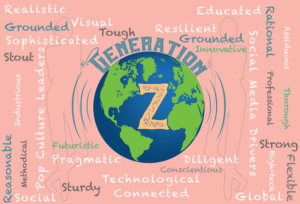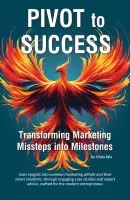- +1 512-591-8295
- [email protected]
- Mon - Fri: 9:00 - 16:00

Who is Generation Z? How do you need to be marketing to Generation Z?
This is the group born after the Millennials, and they outnumber millennials by at least 1 million.
While there is no set age or dates of birth, researchers typically use birth years ranging from 1997 – 2012.
That would put the oldest members in the group around age 25 – just graduating from college, perhaps entering the workforce full-time, and your future customers if they aren’t already! They’re getting married, having children, buying a car, buying a house.
At the other end of this demographic are those ages 10 and up, still in school – but they’re quickly reaching their own purchasing power and are likely already influencing their parents if they can’t yet buying on their own.
This generation was raised connected to the internet.
So for the most part, this generation likely always had internet in their homes or readily available.
They either never knew or can’t remember a world without Facebook (started in 2004 available to college students) and other social media (Six Degrees started in 1997 and Friendster in 2002), and online video services such as Netflix (1997) and Hulu (2007).
They have always been able to purchase online. They have always been connected, not just to the internet but to the entire world as a whole, and therefore have a global outlook.
Gen Z grew up hearing horror stories from Millennials about huge student loan debt, which tends to make them financially cautious, and big savers who value good deals. This also makes them more open to career routes that do not require college.
Vicky Wu Tweet
Generation Z is usually described as frugal and brand wary. For this oldest segment of the group, their teenage years were spent during a heavy recession, which has shaped their views.
They grew up in a world with the Occupy Wall Street movement. They have less trust of brands and stronger bullshit filters.
Combine that with the fact that they were raised on the internet, which provides easy ability to dig into what brands truly stand for versus their carefully curated and presented image, and access to unlimited reviews from other consumers – both of which are available to an extent now that they have never been before. An unauthentic brand is easy to spot.
Gen Z highly value authenticity and transparency. Finding ways to communicate that in your messaging will be valuable.
Vicky Wu Tweet
Gen Z tends to be savers as opposed to spenders. This also means they have less brand loyalty.
As an example, while millennials flocked to recognizable brand names in apparel and wore their clothing with pride, Gen Z is less willing to be walking advertisements, and as a result many apparel companies felt a negative impact on their bottom line.
If you’ve seen the recent document on Netflix about Abercombie & Fitch, one of the reasons they needed to make a pivot in their marketing (and their overall business methods) was in part because while Millennials loved the name brands, Gen Z wasn’t as brand loyal – especially if they felt the brand didn’t deserve their loyalty for some reason.
However, when they do have some loyalty to a brand, they also expect the brand to show them loyalty in return. They need to feel the appreciation.
Gen Z tend to trust individuals more than big brands - hence the need for reviews and testimonials. While Gen Z understands social media influencers may be paid endorsements, they still tend to trust the individuals they choose to follow on social media.
Vicky Wu Tweet
Other traits being seen in this group include being more competitive, especially when it comes to the job market, and being more inclusive and accepting of those who may look, act, or love differently than they do.
Lately, you’ve likely been hearing more about the metaverse and virtual reality use for business.
Because we already know Gen Z was raising on the internet, they’ve also been in the existing metaverse likely for over a decade. They are ready and primed for metaverse and virtual reality to be embraced by businesses (as long as it’s not disruptive).
This group has already been spending much of their time in the metaverse (or spots adjacent) – including spending real money – which why businesses should pay attention.
According to a study by Vice Media Group and Razorfish:
But don’t be confused thinking that only younger consumers are spending time in virtual reality and the metaverse. And don’t be confused – it’s not only about “gaming”. I’ve been marketing in this space for a long time already, and I can tell you that it’s neither.
During the pandemic, my husband bought an Oculus Quest 2. His goal was to play some games. He rarely has time for games yet it seems like a lot of guys he does enjoy new technology. He had used it once, so I explored and found some really interesting apps – including some workout apps.
One that I play most often is Supernatural. You’d be surprised at how much of a physical workout you can get in this game, and the community built around it is just as stellar.
I tell you this because you might assume that this workout game is primarily filled with young techie folks. But you would be wrong. Regularly in the community you’ll see people over 50, all the way up into their 80s. (I don’t have the stats on the percentage breakdown – if I get those, I’ll let you know.)
Neither all about game nor all about young people.
Also don’t mistakenly think that virtual reality marketing needs to be too hard and complicated for a small business to undertake. There are some relatively simple ways that an entrepreneur can begin to explore metaverse marketing – as I outlined in the more recent article linked.
If you’ve been doing your marketing, and doing business, the same old way, it may be time to change your strategies a bit to better engage a younger audience.
Leave your thoughts below!
Get solid marketing strategies, designed for entrepreneurs on the track to 7-figures and beyond, right in your inbox.

This website uses cookies to ensure you get the best experience on our website. By continuing to use the website, you agree to our use of cookies. We do not share or sell your information. More info
